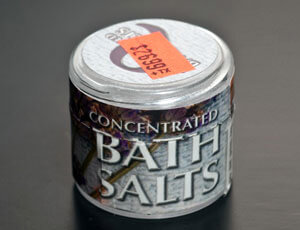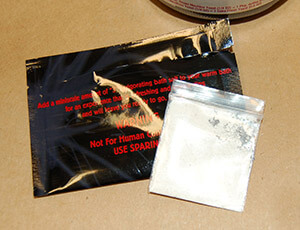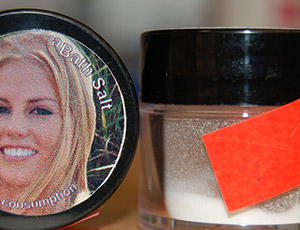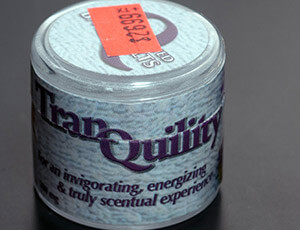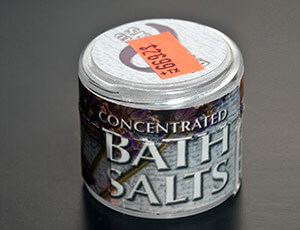- Over-the-Counter Drugs
- Prescription Drugs
Bath Salts are classified as Schedule I Drugs by the DEA
- No currently accepted medical treatment use in the U.S.
- The drug or other substance has a high potential for abuse
- There is a lack of accepted safety for use under medical supervision.
What are bath salts?
Bath salts are a family of drugs containing one or more synthetic chemicals related to cathinone, an amphetamine-like stimulant found naturally in the Khat plant.
Common names include Ivory Wave, Bloom, Cloud Nine, Lunar Wave, Vanilla Sky, White Lightning and Scarface.
What do bath salts look like?
Bath salts are typically white or brown crystalline powder and are sold in small plastic or foil packages both online and in drug paraphernalia stores. Bath salts are marketed under a host of brand and product names including plant food, jewelry cleaner and phone screen cleaner.
Traditional bath salts such as Epsom salts are designed to promote a soothing bathing experience. In the drug realm, they are related in name and appearance only. The white powder or crystals are derived from a completely different chemical composition.
Bath salts are named by deceptive marketers looking to circumvent the law and sell these illegal substances under a legal loophole in the system. In fact, many of the packages contain the warning, “Not for human consumption,” right on the label.
How are bath salts abused?
Bath salts are most commonly taken orally, but users also inhale and/or inject the substance.
How do bath salts affect a person?
Bath salts have energizing (and sometimes agitating) effects similar to amphetamines and cocaine. Bath salts raise the level of the neurotransmitter dopamine in brain circuits regulating reward and movement, which causes feelings of euphoria and increased activity. A similar surge of norepinephrine also occurs, which can raise both heart rate and blood pressure.
Bath salts also often have hallucinatory effects consistent with MDMA and LSD, raising the serotonin levels, another neurotransmitter.
What are the health effects/risks of using bath salts?
While marketed as cheap substitutes for drugs like cocaine, the adverse effects of bath salts can be far more deadly. Common reactions include rapid heartbeat, high blood pressure, chest pains, agitation, hallucinations, extreme paranoia, aggressive behaviors and delusions. The long-term effects of bath salts can include prolonged depression, anxiety, intense cravings for the drug, breakdown of skeletal muscle tissue and brain swelling/death. Bath salts carry a considerable risk of stroke, heart attack and sudden death. These dangers become even more complicated due to the wide variety of other unknown ingredients, each containing its own variant of additional harmful effects.


